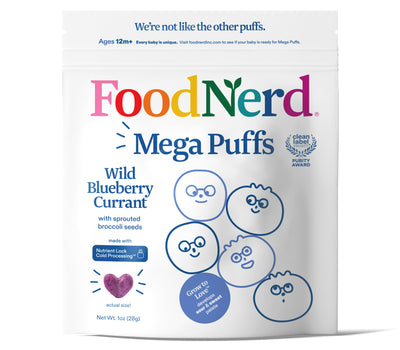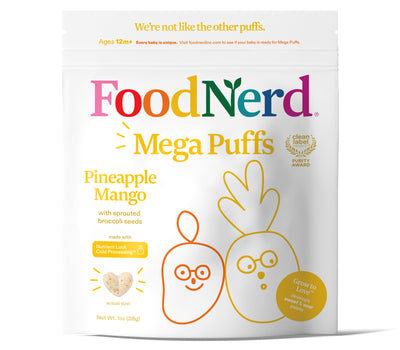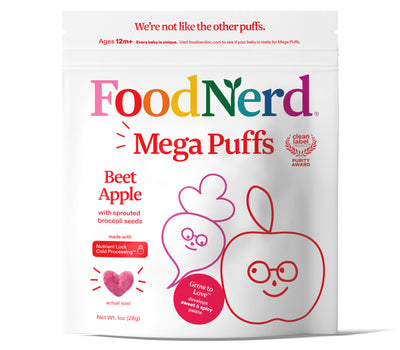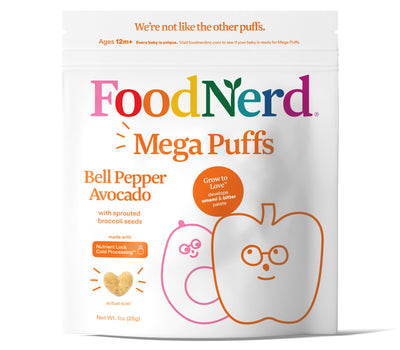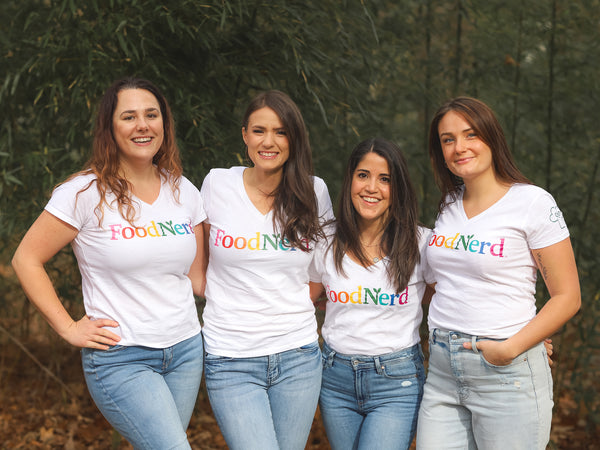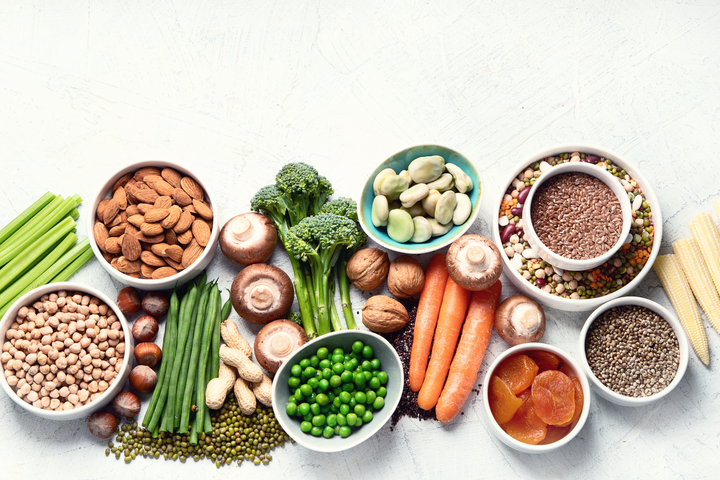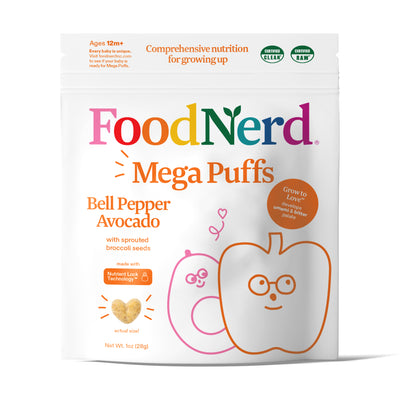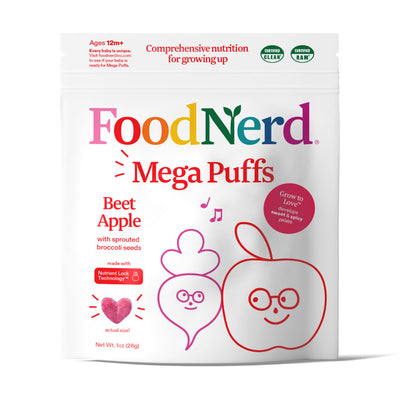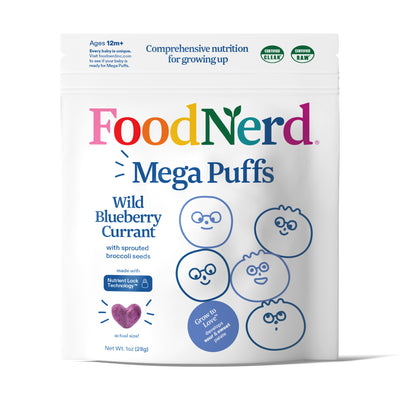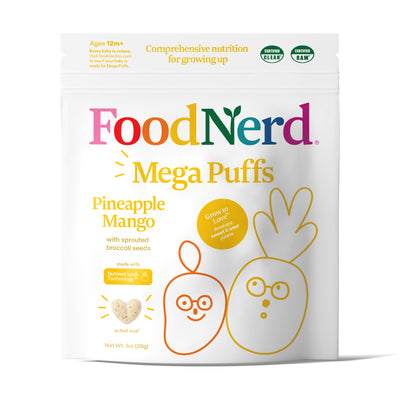Food is Medicine
Hippocrates once said, “thy food is thy medicine, and thy medicine is thy food.” This perfectly describes one of our favorite foods, broccoli sprouts!
Broccoli sprouts are broccoli seeds that have been sprouted (to learn more about sprouting, click here). We love broccoli sprouts for many reasons:
- Rich in vitamins A, C, E, K and minerals, such as selenium, phosphorous, and magnesium.
- Contain fewer anti-nutrients (thanks to sprouting), which means they are easier to digest, and our bodies better absorb their nutrients.
- But most of all……Broccoli sprouts have very high phytochemicals that are highly beneficial for our health!
The Phytochemicals in Broccoli Sprouts that Make Them so Special
Broccoli sprouts contain high amounts of health-promoting plant compounds and phytochemicals, glucosinolates, isothiocyanates, and colored flavonoids called anthocyanins.
Let us break this down for you…
Cruciferous vegetables, such as broccoli, cabbage, and kale, are rich sources of glucosinolates. Glucosinolates are not biologically active molecules, meaning they cannot affect our human biology and therefore do not impact our health.
However, when ground, chewed, or chopped, plant tissue causes a reaction that transforms inactive glucosinolates into bioactive isothiocyanates. Bacteria in our gut microbiome also help to convert some glucosinolates to isothiocyanates!
Because isothiocyanates are active compounds, they can directly impact our health!
The essential isothiocyanate found in broccoli sprouts is sulforaphane!
What does sulforaphane do?
This sulfur-rich compound sulforaphane is found in cruciferous vegetables such as broccoli, bok choy, and cabbage. Studies have shown that it has powerful health benefits. In these foods, the inactive form of glucoraphanin belongs to the glucosinolate family of plant compounds.
Sulforaphane activates when glucoraphanin comes into contact with myrosinase, which are enzymes that play a role in the defense response of plants. When a plant is damaged, myrosinase enzymes are released and activated. Myrosinase and sulforaphane are triggered by cutting, chopping, or chewing cruciferous vegetables. Raw vegetables contain the most amount of this substance. Some of the broccoli extract benefits can only be obtained by eating it without cooking it.

Why We Should Care About Sulforaphane
Sulforaphane (SFN) has many health-promoting properties, including antioxidant, anti-inflammatory, anticancer, antimicrobial (fights off germs such as bacteria and viruses), anti-aging, neuroprotective (protects brain cells), and antidiabetic properties.
Another reason Sulforaphane is so magical is that it has been shown to help prevent and treat a variety of chronic disease conditions, including:
Cancer
In vitro (test tube), animal, and in vivo (human) studies show promising results regarding Sulforaphane and cancer. For example, Sulforaphane has been shown to protect cells from environmental carcinogens (substances in the environment that can cause cancer) and also help to induce apoptosis in cancer cells (cancer cell death).
Sulforaphane appears to impact cancer cells because of its anti-inflammatory properties since chronic inflammation and cancer development are thought to be closely related.
Human studies that have demonstrated the powerful effect of Sulforaphane on cancer
- Breast Cancer:
A double-blinded, randomized, placebo-controlled clinical trial from John Hopkins involved 34 patients with DCIS breast cancer (cancer in the milk ducts that has not yet spread to the breast itself). It used a daily oral broccoli extract supplement that consisted of 100 µmols of sulforaphane every day for 14 days.
Results: After just 14 days of treatment with Sulforaphane, the growth of the patient’s cancer cells slowed.
- Prostate cancer:
A double-blinded, randomized, placebo-controlled clinical trial that involved 78 patients with biochemical recurrence of prostate cancer after removal of the prostate gland used a daily oral supplement of 60 mg of Sulforaphane for six months, followed by two months without treatment.
Results: The treatment group showed a significant decrease in prostate-specific antigens (PSAs) levels, usually elevated in prostate cancer. PSAs monitor prostate cancer progression in patients who have already been diagnosed.
Autism:
Sulforaphane’s potent antioxidant activity helps to reduce oxidative stress, neuroinflammation (inflammation in the brain or spinal cord), and many other biochemical imbalances that are seen in autism.
Human studies have shown that Sulforaphane helps to reduce negative symptoms of autism.
A double-blinded, randomized, placebo-controlled trial that involved young men (aged 13–27) with moderate to severe autism spectrum disorder (ASD) received a daily broccoli extract Sulforaphane supplement based on 50 µmol per 100 lbs of body weight every day for 18 weeks, followed by four weeks without treatment.
Results: A significantly greater number of participants receiving Sulforaphane had improvement in social interaction, abnormal behavior, and verbal communication. After the SFN supplement stopped using, total scores on all behavioral scales increased toward pretreatment levels.
Heart Disease
Currently, only animal studies have been performed to study the effects of Sulforaphane on heart disease, which have shown Sulforaphane to be a powerful protector against heart disease.
A recent study using rats supplemented with Sulforaphane (broccoli extract) concluded that Sulforaphane helps to regulate the autonomic nervous system, which controls the functioning of the heart and protects the heart from acute cardiac stress, which can weaken our hearts!
Diabetes
Sulforaphane has been shown to reduce glucose production in the liver (which contributes to high blood sugar) and improve glucose control in patients with type 2 diabetes.
A double-blinded, randomized, placebo-controlled trial that involved 97 patients diagnosed with type two diabetes used an oral broccoli extract Sulforaphane supplement (freeze-dried powder that provided a consistent and stable source of Sulforaphane) for 12 weeks.
Results: There was a significant change in fasting blood glucose in the broccoli extract-treated patients compared to those treated with placebos. By the end of the study, fasting blood glucose and HbA1c were improved in the patients taking the Sulforaphane supplement.
Gut Health
In combination with fiber, Sulforaphane is excellent for gut health!
A study using mice found that a Sulforaphane supplement helped to increase beneficial bacterial species in their microbiome, thereby helping to balance the composition of gut microbes and helping to repair injuries to the gut barrier. It also helped to decrease inflammation and immune response!
Mental Health
Studies have shown the anti-anxiety and anti-depressant effects of Sulforaphane.
A study using mice found that, due to its anti-inflammatory effects, a Sulforaphane supplement could suppress their inflammatory response to stress and their stress response system.
This study concluded that anxiety-like behaviors of chronically stressed mice were significantly reversed with the SFN treatment.
It is hypothesized that Sulforaphane’s low molecular weight can easily cross the blood-brain barrier to produce anti-depressant and anti-anxiety effects in animal studies, which means that there is potential for the same thing to happen in humans.
Why Broccoli Sprouts are the Ultimate Source of Sulforaphane
- more sulforaphane than mature broccoli. This is because broccoli seeds, which are sprouted, contain the highest amount of glucosinolates than any other part of the broccoli plant.
- They contain the highest amount of phytochemicals, including Sulforaphane! Eating broccoli sprouts gives you the highest concentration of phytochemicals (more phytochemicals = more health benefits!). This is because sprouts are young plants that produce more phytochemicals, which help fight off insects and other natural predators (as the plant grows, it loses some of these protective phytochemicals).
FoodNerd—Expert Broccoli Sprout Connoisseurs
We expertly sprout broccoli seeds to the three-day mark when they reach their peak sulforaphane.
Also, it’s important to note that the amount of glucosinolates significantly changes during heat treatment. No glucosinolates means no Sulforaphane. That’s why we use minimally processed ingredients never treated with high pressure or heat.
Conclusion
Studies have shown the powerful health-promoting effects that sulforaphane can have on our bodies, which have proven to be even more potent than some pharmaceutical drugs! Eating broccoli sprouts daily is simple: take full advantage of Sulforaphane’s magical health benefits.
You can get your daily dose of Sulforaphane with our Broccoli Sprout Powder. You can also give your kids their daily dose in our new Mega Puff line!
One of the best things you can do for your health is to eat real food, and our goal is to make it very easy to accomplish that! Our Mega Puffs are the first ever raw and sprouted toddler puff that contains high-quality broccoli sprouts.
Sources:
- Axelsson, Annika S., et al. "Sulforaphane reduces hepatic glucose production and improves glucose control in patients with type 2 diabetes." Science translational medicine 9.394 (2017).
- · He, Canxia, et al. "Sulforaphane normalizes intestinal flora and enhances gut barrier in mice with BBN‐induced bladder cancer." Molecular nutrition & food research 62.24 (2018): 1800427.
- · Mokhtari, Reza Bayat, et al. "The role of Sulforaphane in cancer chemoprevention and health benefits: a mini-review." Journal of cell communication and signaling 12.1 (2018): 91-101.
- · Pereyra, Katherin V., et al. "Dietary supplementation of a sulforaphane-enriched broccoli extract protects the heart from acute cardiac stress." Journal of Functional Foods 75 (2020): 104267.
- · Singh, Kanwaljit, et al. "Sulforaphane treatment of autism spectrum disorder (ASD)." Proceedings of the National Academy of Sciences 111.43 (2014): 15550-15555.
- · Study to Evaluate the Effect of Sulforaphane in Broccoli Sprout Extract on Breast Tissue - Full-Text View. Full-Text View - ClinicalTrials.gov, 2013, clinicaltrials.gov/ct2/show/NCT00982 319?term=NCT00982319.
- · Vanduchova, Alena, Pavel Anzenbacher, and Eva Anzenbacherova. "Isothiocyanate from broccoli, sulforaphane, and its properties." Journal of medicinal food 22.2 (2019): 121-126.
- · Wu, Shuhui, et al. "Sulforaphane produces antidepressant-and anxiolytic-like effects in adult mice." Behavioral brain research 301 (2016): 55-62.
